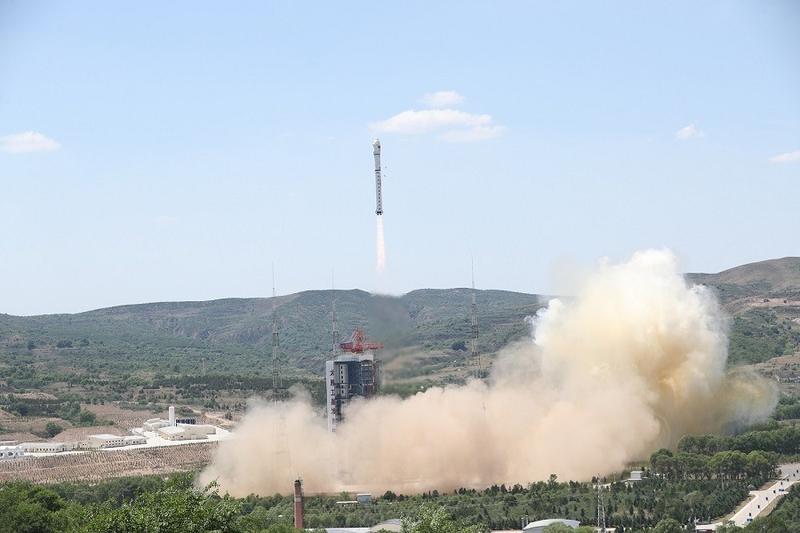 China launches a Long March 2D carrier rocket to transport 41 satellites into space on June 15, 2023. (PHOTO PROVIDED FOR CHINA DAILY)
China launches a Long March 2D carrier rocket to transport 41 satellites into space on June 15, 2023. (PHOTO PROVIDED FOR CHINA DAILY)
China launched a Long March 2D carrier rocket on Thursday afternoon to transport 41 satellites into space, setting a new national record for the most spacecraft launched in a single mission.
The rocket blasted off at 1:30 pm from a service tower surrounded by mountains at the Taiyuan Satellite Launch Center in Shanxi province, thundering up into sunny skies.
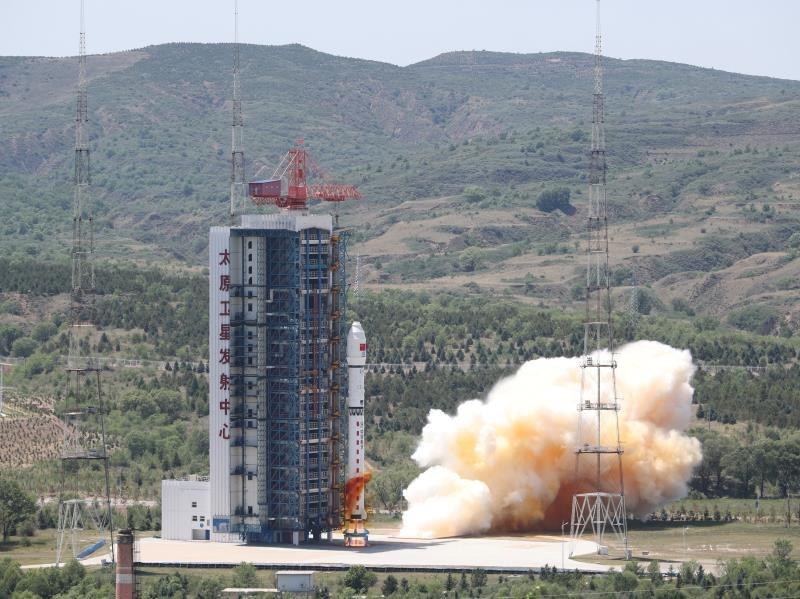 China launches a Long March 2D carrier rocket to transport 41 satellites into space on June 15, 2023. (PHOTO PROVIDED FOR CHINA DAILY)
China launches a Long March 2D carrier rocket to transport 41 satellites into space on June 15, 2023. (PHOTO PROVIDED FOR CHINA DAILY)
After a short flight, the second stage of the rocket successfully placed the 41 small remote-sensing satellites into preset orbits, according to China Aerospace Science and Technology Corp, the launch mission's contractor.
ALSO READ: Tech advance helps control descent of rocket debris
Designed and manufactured by the Shanghai Academy of Spaceflight Technology, a CASC subsidiary, the Long March 2D is one of the most reliable rockets in this nation. Since its debut in August 1992, the model has been used in 76 flights, all of which have been successful.
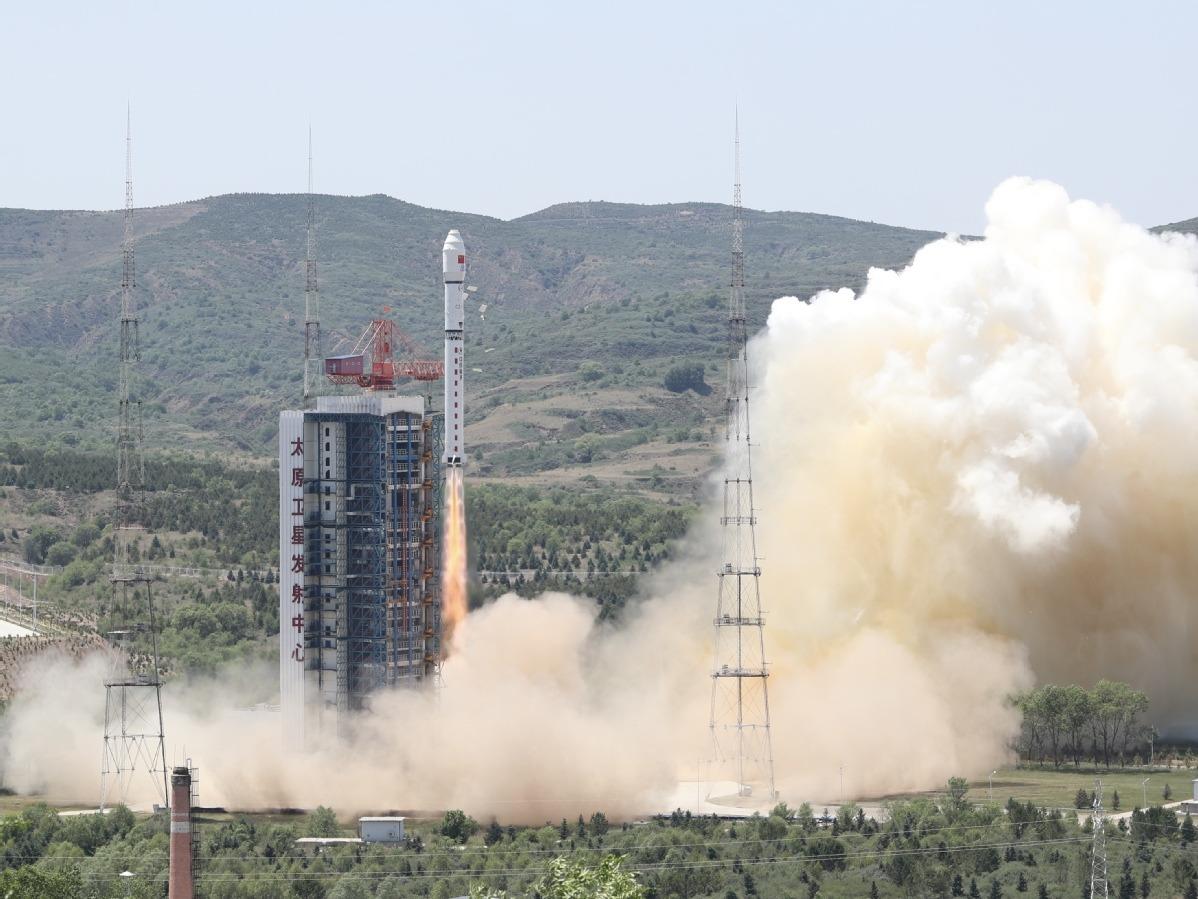 China launches a Long March 2D carrier rocket to transport 41 satellites into space on June 15, 2023. (PHOTO PROVIDED FOR CHINA DAILY)
China launches a Long March 2D carrier rocket to transport 41 satellites into space on June 15, 2023. (PHOTO PROVIDED FOR CHINA DAILY)
Its success has earned it the "gold-medal rocket model" moniker in China's space industry.
The 40.6-meter rocket has a diameter of 3.35 meters and a liftoff weight of 251 metric tons.
Its typical tasks are to transport satellites to low-Earth or sun-synchronous orbits.
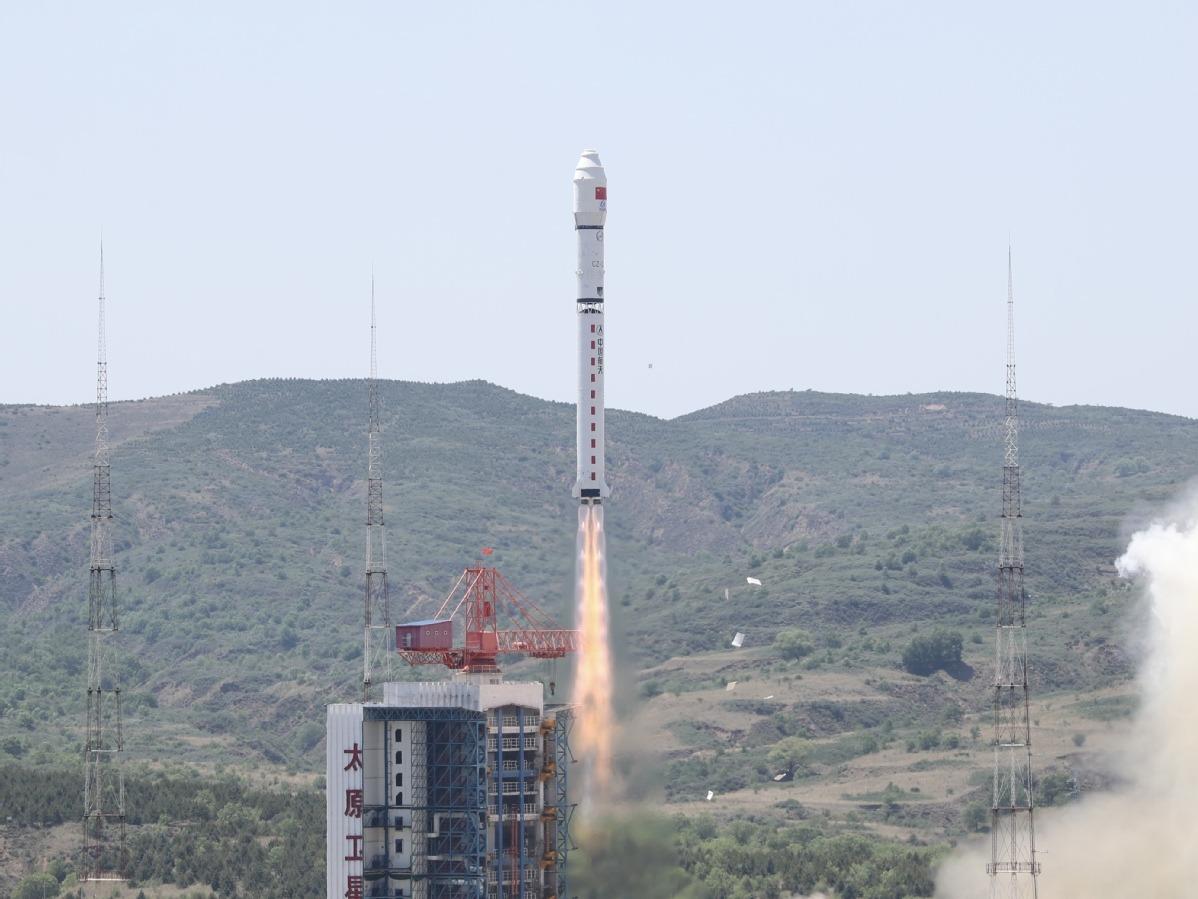 China launches a Long March 2D carrier rocket to transport 41 satellites into space on June 15, 2023. (PHOTO PROVIDED FOR CHINA DAILY)
China launches a Long March 2D carrier rocket to transport 41 satellites into space on June 15, 2023. (PHOTO PROVIDED FOR CHINA DAILY)
It is capable of sending a 1.3-ton spacecraft to a sun-synchronous orbit with an altitude of 700 kilometers, or satellites with a combined weight of 4 tons to a low-Earth orbit.
ALSO READ: China places experimental communications satellite in orbit
The previous national record was set just eight days ago by a ZK 1A rocket, which sent 26 satellites into orbit. The ZK 1A was developed by CAS Space, a company headquartered in Beijing.
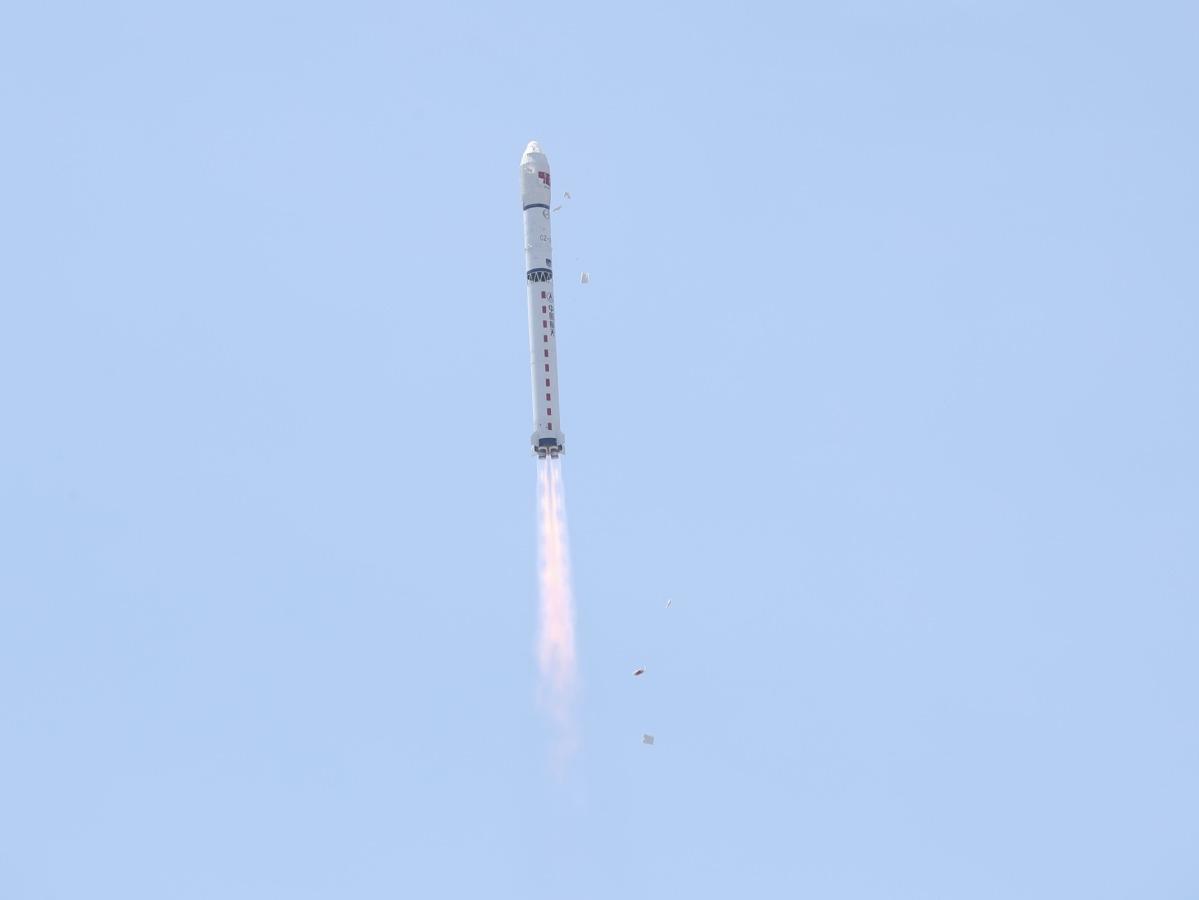 China launches a Long March 2D carrier rocket to transport 41 satellites into space on June 15, 2023. (PHOTO PROVIDED FOR CHINA DAILY)
China launches a Long March 2D carrier rocket to transport 41 satellites into space on June 15, 2023. (PHOTO PROVIDED FOR CHINA DAILY)
The world record is held by SpaceX's Falcon 9, which lifted 143 satellites in January 2021. SpaceX is based in California.
The satellites launched on Thursday were built by Changguang Satellite Technology, a State-owned enterprise in Northeast China's Jilin province, and are mainly tasked with obtaining high-definition Earth images.
READ MORE: China's rocket engine trial for crewed lunar missions sets record
The images and data products generated by the space-based network will be used in a wide range of fields such as industrial analysis, regional surveys, landing resources mapping, mineral development and urban construction planning, according to the academy.


